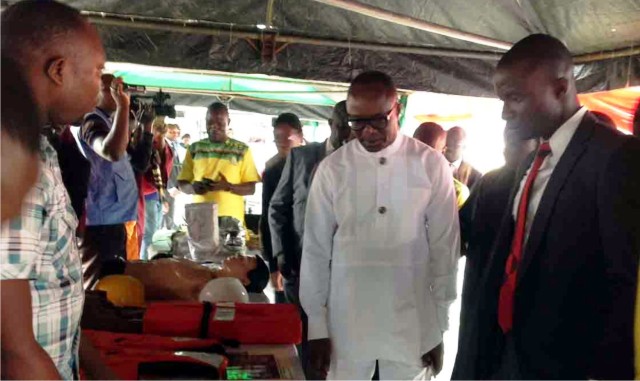Business
FRSC Does Not Sell Speed Limiting Device – Official

The Federal Road Safety Commission (FSRC) has re-affirmed its position of non-involvement in the marketing of speed limiting devices for vehicles in the country.
Spokesman of the agency, Mr Bisi Kazeem, told newsmen in Abuja last week that accredited vendors were in charge of sale and calibration of the device.
There are accredited vendors screened by the Standards Organisation of Nigeria (SON), the National Automotive Design and Development Council (NADDC) and FRSC.
They are the ones in charge of sale and calibration of the speed limiting device, not the FRSC,’’ he said.
Kazeem was reacting to Thursday’s move by the Senate to stop the ongoing enforcement of the installation of the speed limiting device on vehicles by the FRSC.
The President of the Senate, Sen. Bukola Saraki, had asked the Committee on Federal Character to look into the matter following a point of order raised by Sen. Dino Melaye.
Media reports quoted Melaye as saying “the proposal by the FRSC to sell speed limiting device to car owners’’ would cause further economic hardship for Nigerians.
If you have two cars you buy two speed limiting devices. This is not the time to bring economic hardship upon the already traumatised people of this country.
In every civilised part of the world, it is the responsibility of road safety authorities or agencies to mount speed limiting devices on roads, and when you beat this speed, they charge you.
To ask individuals to purchase the speed limiting device from road safety is unacceptable and this is even not the time to do it,” Melaye was quoted as saying.
The FRSC began full enforcement of the installation of the device, which costs N35, 000, on commercial vehicles on February 1, and planned to extend it to other categories of vehicles in due course.
Kazeem said introduction of the policy was within the mandate of the commission, noting that the enforcement began since February 1, and not about to begin as stated by the senator.
He added that the House of Representatives had earlier endorsed the policy after a public hearing.

